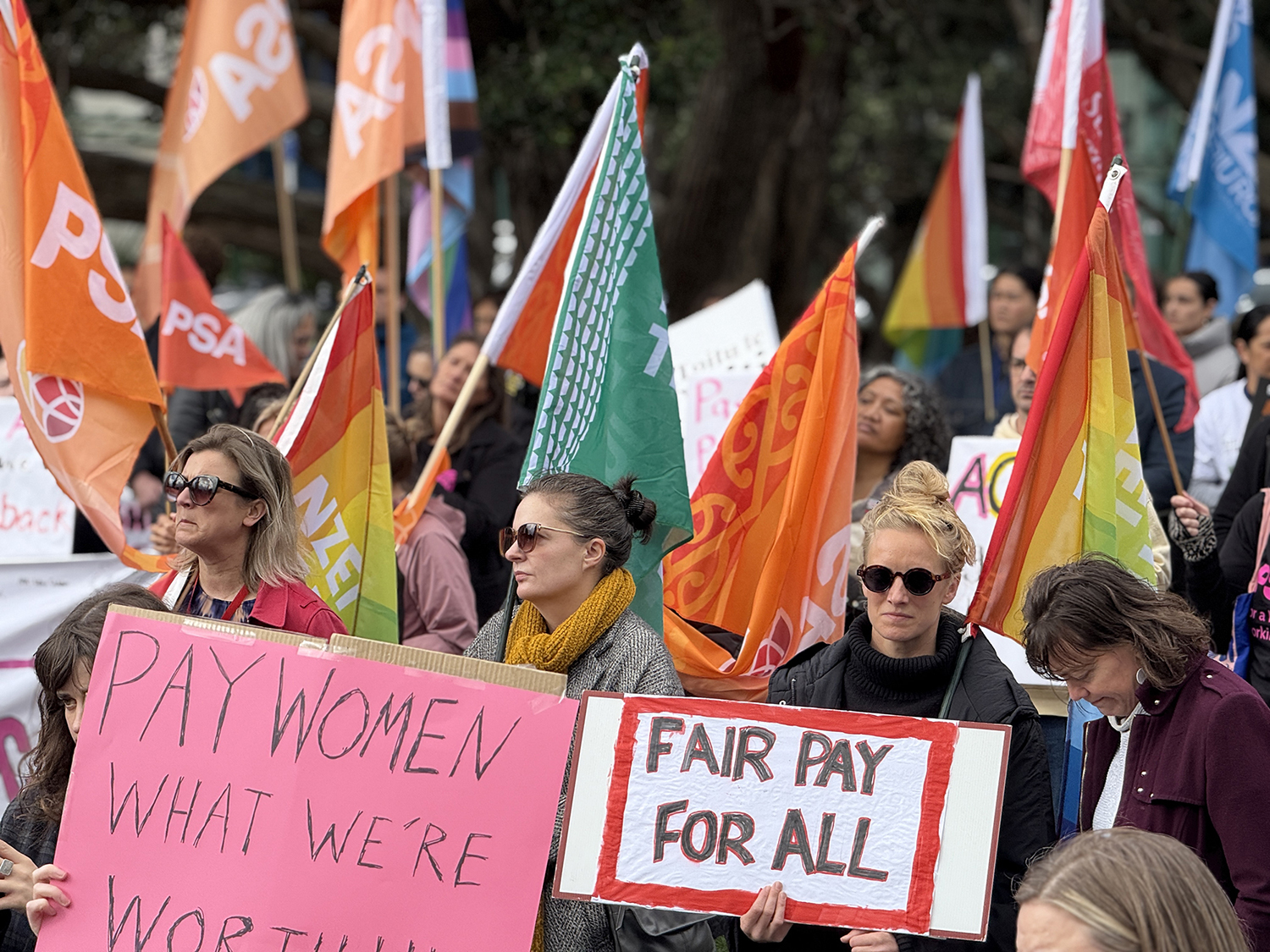New Zealand workers and unions were hammered by a Bolger National Government king hit in 1991 in the form of the Employment Contracts Act. In 2000 they were provided with some cautious relief in the form of the Clark Government’s Employment Relations Act. Since 2008, the Key Government, aware of the ultimate unpopularity of the Employment Contracts Act, has engaged in a gradualist policy of destroying the Employment Relations Act by a thousand cuts, writes Harry Johnson.
There is a choice in the upcoming elections that will determine whether New Zealand can go forward as a country that again respects and improves on internationally sanctioned labour values or continues to slip more deeply into an authoritarian employment relations milieu that allows employers free rein to set and reduce terms and conditions of employment at will.
But more than this is really required from the elections. More than just a change in trend, New Zealand needs at a minimum change that will decisively restore rights that ensure workers throughout the country obtain fair wages and conditions and are treated with respect and consideration. The object must not be to just roll back the damage done by the Key Government and return to the status quo of the Employment Relations Act. There is a need to fully appreciate that the losses of the Employment Contracts Act were only weakly mitigated by the Clark Government. The need is to reverse the losses in full.
To help illustrate the need for radical reform, the following describes the main features of an employment agreement that continues to bear the main features of the worst types of employment contracts that emerged with the Employment Contracts Act. Some details relating to the context of the agreement have been generalised and slightly amended to avoid identification and victimisation of any workers. Otherwise the contract is entirely genuine.
In this example, the worker, who had been unemployed for a considerable period of time, was offered early this year an ‘internship’ to do manual, unskilled work that she was, as a university graduate, substantially overqualified to undertake. Having completed the internship of unpaid work for three months with an acknowledged high level of commitment and output, the worker was then offered an individual, fixed-term employment agreement for six months by the same organisation at a rate fractionally above the minimum wage. The employer operated a non-union site and no collective agreement applied. In effect the employer offered the worker a ‘take it or leave it’ contract. The worker was in no position to negotiate any changes or refuse the employer’s offer. Failure to accept the agreement would have resulted in non-employment and the loss of her unemployment benefit.
The agreement was a fixed term agreement even though the employer was a contractor with a need for workers to carry out a particular quantum of ongoing work. The only reason stated in the agreement for the fixed term was that it was a trainee position. The employer stated that its policies and procedures were part of the employment agreement and that it could amend these unilaterally. The employer gave itself the right to change the worker’s duties and the location of her work at will.
The employer set the hours of work at forty hours but required the worker to work additional hours if necessary. The agreement stated that the worker would receive no additional payment for working beyond or outside normal hours except as specified in the agreement. There was no provision for any additional payments in the agreement. There were no provisions for any allowances or other non-statutory benefits. The agreement allowed the worker no sick or bereavement leave. Even so the employer asserted its right to the worker’s private medical information should the worker be sick!
Holiday pay was included with wages and made her overall pay, which was well below the living wage, only slightly less inadequate. The only holidays the worker had in front of her, barring statutory public holidays, was the unenviable possibility of resuming her unemployment on the dole at the end of her six months.
The agreement allowed the employer to make deductions from the worker’s low wages if the employee did not follow the precise requirements set by the employer with respect to termination. The employer set various conditions under which it could summarily terminate the worker’s employment including, bizarrely for a manual worker, bankruptcy.
The worker accepted all these conditions on the basis she had no choice. This is exactly what she would have done under the Employment Contracts Act in the 1990s.
Workers should not have to put up with this. What should be required at minimum from a new Government is legislation that creates an industrial environment in which employers must negotiate with unions and reach fair outcomes, they must allow workers a genuine voice in determining the operation and futures of the organisations they work in, and they must accept sympathetic systems that ensure humane management. This is what is needed to ensure the prompt elimination of the obnoxious elements of the Employment Contracts Act that are still part of working life in New Zealand.
We can, incidentally, also take something else from this story. The Key Government is fond of criticising individual New Zealanders, particularly those who are unemployed, for failing to do more to improve their qualifications to meet the new requirements of the knowledge economy. Of course the worker in this case, and not atypically, was completely overqualified for the work she had to take.
Even The Economist now recognises the warnings from influential academics and commentators such as Rifkin and Standing that the knowledge economy is a paper tiger with no realistic capacity to offset job losses in the manufacturing sector and elsewhere, and that many graduates face either being absorbed into some precarious work in the service sector or unemployment.
In this respect then, the employment prospects for many graduates as well as non-graduates alike are dire. Of course we might hope, if there is to be a silver lining to this particular circumstance, that this might lead to the raising of a broader based political awareness that society as a whole should be seeking new and better ways of understanding and performing work within the wholeness of humanely civilised lives.









